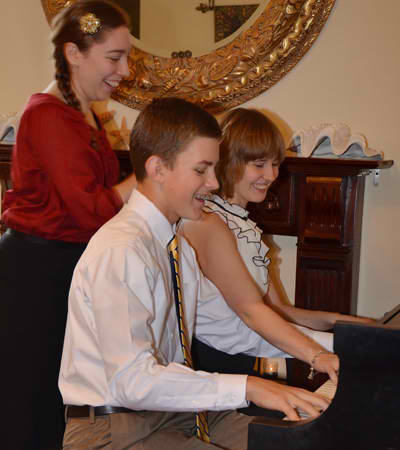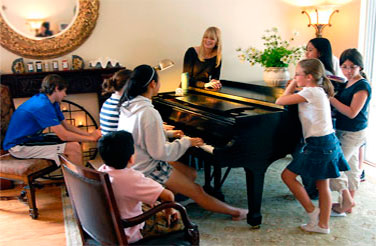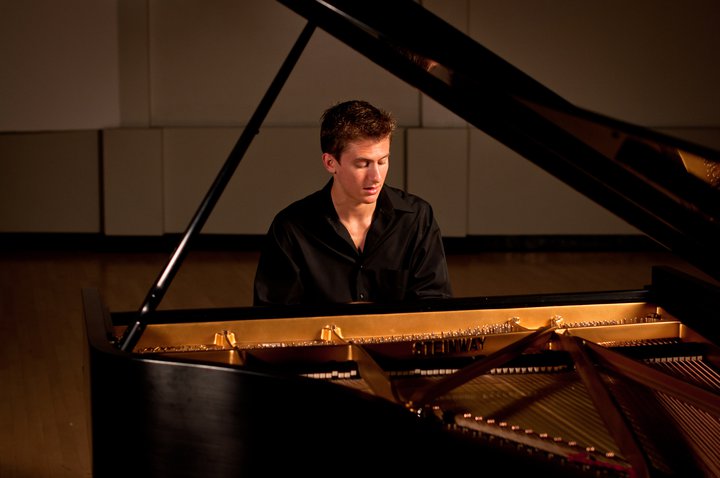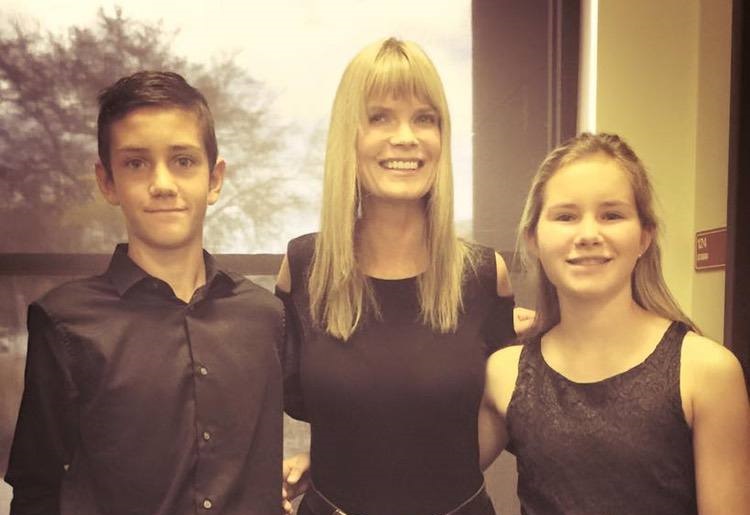Some of the words associated with luxury are ‘perfection’, ‘detail-oriented,’ ‘undivided attention’, ‘no compromise’, ‘mastery’. Worldwide, luxury brands are most often developed within petite, exquisite boutiques. Why would luxury education be any different?
The concept of “Boutique Learning” is nothing new, although the term may be. Fine, private education for everything from schools to private tutelage for the mastery of the piano, violin, painting or tennis has long been the goal for parents and adults who can afford the luxury of it.
What really is ‘Boutique learning’, and how does it apply to private music studios?
1. Quality over Quantity: A Boutique Music School is focused on quality over quantity. The truth is, no school can offer “something for everyone”, but most try because they are concerned with profit. This weakens the school. The finest schools know what they ARE and what then ARE NOT and put their passion, talent and time into creating a powerful and refined program that gets results.
We offer the finest teachers, finest instruments and equipment, and the best and most challenging curriculum, including Royal Conservatory exam preparation and a multitude of district, state, national and international competitions. Our students are expected to practice and come to lessons prepared, but our expectations are realistic for the average student. Within 6 months, results far beyond what has previously been experienced will be evident. Morale will be higher; students will look forward to their classes with enthusiasm.
2. Each Student is different: The novel idea of boutique learning is focused around individualized learning. Can a common approach work for all students? No, since, certain areas strong for one student could be weak for another one. Some are on the “fast track”- by choice, and others are making time within a more constrained schedule. Customization can be a solution only if one is able to spot the skill set and current time-availability differences in each student.
3. Lower Student-teacher ratio: A smaller group of students per faculty ensures that every student gets to know the faculty individually. Within this enviable environment, each student gets VIP treatment: no opportunity for a new experience is lost, no getting passed over. When the time is right, the opportunity to do something special: join an ensemble, learn a concerto, participate in a new competition or event, will be suggested and begun. This is why our students don’t get bored. This is where the enthusiasm is maintained.
4. Experts as faculty: When every member of our faculty is a degreed and seasoned performer as well as instructor, students will sense a difference and respect that. Our instructors are the real thing: intelligent adults with a lifetime of experience with performance in music as a skill and passion. Suddenly, the meaning behind the concept is clearer. The instructor is not a bored person being paid to sit there for the duration of the lesson, but rather is a friend and mentor who cares about what inspires you and knows how to help you become an amazing performer, one step at a time, nurtured and supported. We do not employ “pedagogy” teachers; WPS is Performance degrees only. The difference is performance degrees demand the musician be in the top 1-5%-ile. These teachers are the cream of the crop.
The quality over quantity concept applied to education calls for individualized, private lessons, which enhance the experience in several important ways:
Team spirit is encouraged in a small environment. It plays an important role both in personal and professional life. Students getting together to achieve a common goal is the core of team spirit. Gathering for frequent group performance classes, ensemble rehearsals, field trips to concerts, or traveling and staying together for competitions are examples of how our students make friends within the studio and get to experience a group of artistic friends within their classical music studies. A smaller student body also offers a greater opportunity for each student to experience full participation and leadership growth. (See our article about our teen club “MUSE” and the “Rainbow Music Project”).
The ‘boutique’ model is unique in its emphasis on relationships — moving beyond the standard of teacher to student and extending a focus on teacher to parent, student to student, parent to parent interaction, not forgetting school administrators who are far more involved with individual students than they could be in a larger school situation.
A smaller batch size allows for more intimate and tailored attention to individual needs.
Private classes also allow teachers to tailor their lessons and styles to meet the needs of individual students.
With regard to “group piano lessons” : These are not respected within the classical music community, and they hurt the progress of each studentbecause poor habits arise unchecked within group piano. Candidly, the whole concept of “group piano classes” is a purely profit-driven activity, with little to no value for the actual student. Wendelken Piano Studio will never, ever, stoop to offering group piano classes. We are a professional studio, not a commercial venture.
In conclusion, a smaller scale academic organization can provide the proactive quality assurance that many parents seek for their children. A regular exchange between studio and families is fundamental to its students’ success. Questions or concerns that parents have about their child’s learning can be quickly resolved through channels of communication.
In a nutshell, the ‘boutique’ school offers a smaller model that allows for more depth and personal focus. A quality concept facilitates communication, opportunity, nurturing and more personalized experience.




